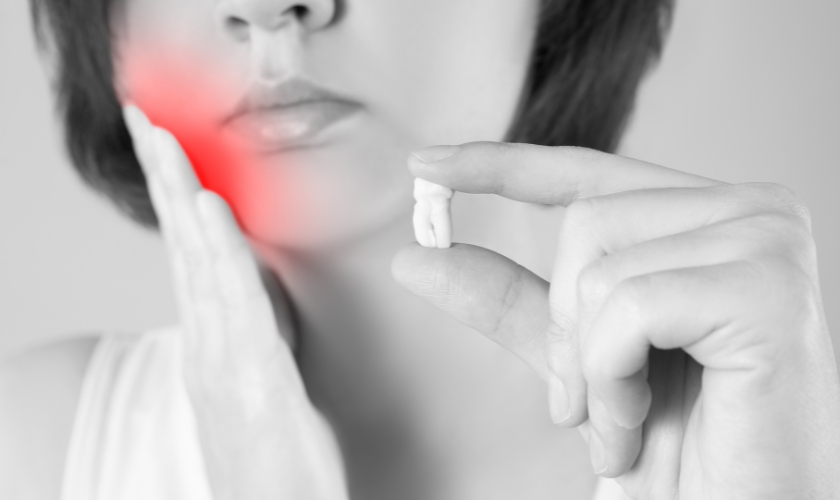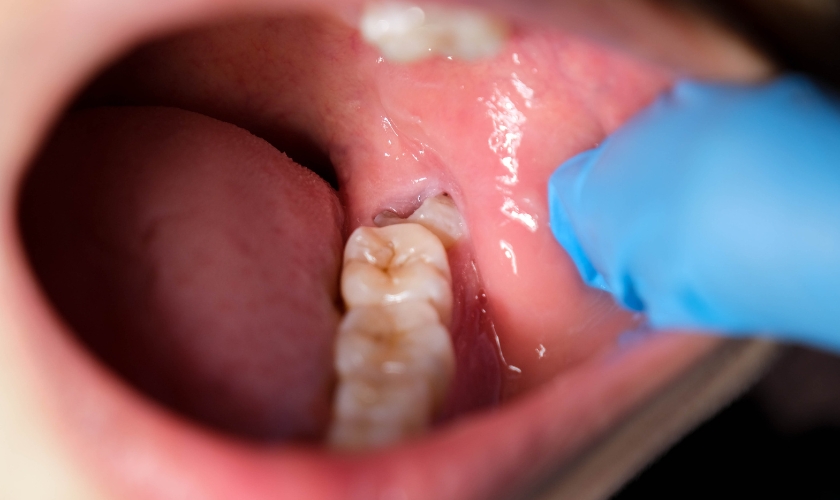
Have you just got your wisdom teeth evicted from your mouth? Congratulations! But hold on, the victory dance might have to wait. You might be experiencing some discomfort, swelling, and maybe even some ear pain. At the same time, that throbbing ear might feel like a whole new dental drama; fret not! Ear pain after wisdom teeth extraction is actually quite common.
Navigating Wisdom Teeth Extraction
Wisdom teeth, those third molars erupting in your late teens or early twenties, can be a real pain – literally. They often erupt partially or completely impacted, meaning they’re stuck under the gum or bone. This can cause a variety of issues like overcrowding, infection, and jaw pain. To avoid these problems, wisdom teeth are often recommended for extraction.
Wisdom teeth removal is a surgical procedure, and like any surgery, it comes with some potential side effects. Swelling, bruising, and discomfort at the extraction site are all to be expected. But why would wisdom teeth removal cause ear pain? Let’s delve into the fascinating world of nerves and connective tissues.
The Nerve Connection: Why Your Ear Feels the Wisdom Teeth Removal Woes
The answer to your earache woes lies in a complex network of nerves in your head and neck. The nerves that innervate your wisdom teeth are also closely associated with the nerves that supply sensation to your ear. When your wisdom teeth are extracted, the surrounding tissues become inflamed. This inflammation can irritate these nerves, causing referred pain. Referred pain means that the pain you feel originates from one location but is perceived in another. So, while the irritation is happening in your jaw from the extraction site, the pain signal is being sent to your ear, making you feel like your ear itself is aching.
Other Reasons for Ear Pain After Wisdom Teeth Removal
Ear pain following wisdom teeth removal can be unsettling, but it’s often a normal part of the healing process. While nerve irritation is a common reason for this discomfort, several other factors could contribute to ear pain after the procedure:
Sinus Issues: The proximity of wisdom teeth to the sinuses means that inflammation from the extraction can sometimes affect these air-filled cavities. This can lead to congestion and pain that may radiate to the ears.
Temporomandibular Joint (TMJ) Dysfunction: The TMJ connects your jaw to your skull, and its proper function is crucial for activities like chewing and talking. Wisdom teeth extraction in Metairie, LA can sometimes lead to temporary TMJ dysfunction, causing pain that may be felt in the jaw, ears, and temples.
Dry Socket: This painful condition occurs when the blood clot that should form in the extraction site either fails to form properly or becomes dislodged. Dry sockets can cause severe pain around the extraction site, which may radiate to the ear.
Finding Relief for Your Post-Extraction Earache
Experiencing ear pain after wisdom teeth extraction in Metairie, LA can be unsettling, but rest assured, it’s usually a temporary side effect that will diminish as you heal. Here are some practical tips to help you manage the discomfort and promote healing:
Pain Medication: To alleviate pain and reduce inflammation, consider taking over-the-counter pain relievers like ibuprofen or acetaminophen. Follow the dosage instructions carefully and consult your dentist if you have any concerns.
Ice Packs: Apply an ice pack to the outside of your cheek, near the extraction site. This can help minimize swelling and provide relief. Remember to wrap the ice pack in a thin towel. It will prevent skin damage and only apply it for short intervals.
Warm Compresses: Once the initial swelling subsides, switch to using warm compresses to promote blood circulation and accelerate the healing process. A warm, damp cloth or a heating pad set on low can be soothing.
Rest: Allow your body ample time to recover by getting plenty of rest and avoiding strenuous activities. Your body’s natural healing process is most effective when you’re well-rested.
Maintain Good Oral Hygiene: To prevent infection and support healing, gently rinse your mouth with warm salt water several times a day. This practice helps keep the extraction site clean and promotes a healthy recovery.
Stay Hydrated: Drinking plenty of water is crucial for your overall health and can also help with your recovery process. Avoid using straws, as the sucking motion can dislodge blood clots and delay healing.
Soft Diet: Stick to a soft diet to minimize discomfort and prevent irritation to the extraction site. Opt for easy-to-chew foods like yogurt, mashed potatoes, and smoothies.
Follow-Up with Your Dentist: Attend all scheduled follow-up appointments with your trusted dentist to ensure proper healing and address any concerns promptly.
When to Call Your Dentist
When it comes to ear pain after wisdom teeth removal, it’s important to understand when to reach out to your dentist for help. While some discomfort is normal and can often be managed at home, certain symptoms should prompt you to seek immediate dental care:
Persistent Severe Pain: If you’re experiencing intense and ongoing pain that doesn’t seem to improve with over-the-counter pain medications, it’s best to contact your dentist. This could be a sign of a more serious issue that needs attention.
Worsening Swelling: While some swelling is expected after wisdom teeth extraction if you notice that the swelling is getting worse instead of improving, it could indicate an infection or other complication that requires treatment.
Fever or Chills: The presence of a fever or chills could be a sign of infection. If you’re experiencing these symptoms along with ear pain after wisdom teeth removal, it’s important to contact your dental professional as soon as possible…
Difficulty Opening Your Mouth: If you’re having difficulty opening your mouth or if your jaw feels stiff and tight, this could be a sign of a more serious issue, such as a dry socket. Your dentist can assess the situation and provide appropriate treatment.
Experiencing ear pain after wisdom teeth extraction is not uncommon, but it should not be ignored. Some degree of discomfort is normal during the healing process. However, persistent or severe ear pain could indicate a complication. These need to be addressed by your dentist or oral surgeon. It’s essential to follow post-operative care instructions carefully. You must also contact your dental care provider if you have any symptoms that seem out of the ordinary. By staying informed and proactive, you can ensure a smoother recovery and minimize the risk of complications.




